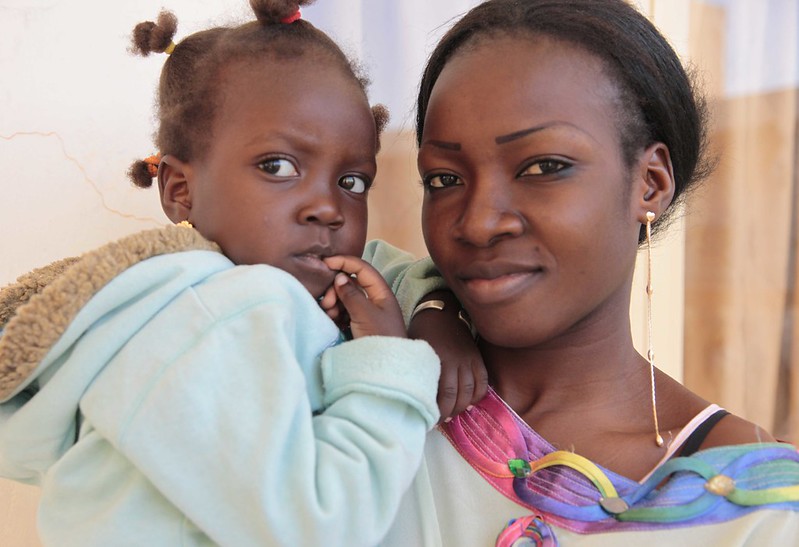 Despite the implementation of the National Strategy for the Prevention and Elimination of Child Marriage in 2015, girls in Burkina Faso remain more likely than not to be married before they turn 18. The strategy outlines commitments aimed at ending child marriage in Burkina Faso by 2025. According to the United Nations (U.N.), however, current rates of progress anticipate it to take another 300 years to end child marriage around the world.
Despite the implementation of the National Strategy for the Prevention and Elimination of Child Marriage in 2015, girls in Burkina Faso remain more likely than not to be married before they turn 18. The strategy outlines commitments aimed at ending child marriage in Burkina Faso by 2025. According to the United Nations (U.N.), however, current rates of progress anticipate it to take another 300 years to end child marriage around the world.
Education levels, humanitarian crises and economic hardship all contribute to Burkina Faso having the fifth highest prevalence rate of child marriage in the world, according to Girls Not Brides. Girls Not Brides is a leading global partnership to end child marriage that engages communities in open discussion to raise awareness of the harmful impact of child marriage, support girls who have been affected by an early or forced marriage and defend girls’ right to health, education and equal opportunity.
The Pressures Facing Young Girls in Burkina Faso
The practice of girls being subjected to early or forced marriages in Burkina Faso has been in place for generations. Rates have either stayed the same or increased in the past three decades due to growing instability in some areas, particularly the Sahel region. Girls are often exchanged or married off as soon as they are born, often due to financial agreements between families or in the pursuit of social advantage.
The consequences facing girls who refuse these arrangements are dire and often result in social exclusion and violence. Pog-lenga, meaning woman gift or bonus woman, is a common practice in Burkina Faso involving a bride bringing a niece or female relative to her wedding as a gift that a friend or family member of her new husband is entitled to take.
Education as a Game-Changer
In Burkina Faso, uneducated girls are four times more likely to experience child marriage than those with a secondary or higher education. The COVID-19 pandemic exacerbated the situation, leading to a decline in education levels as more than 2,000 schools closed, impacting more than 300,000 children.
Educating girls is not viewed as a necessity, as the expectation is for them to be quickly married, involved in household duties and have children at a young age. About 52% of girls in Burkina Faso will be married before they turn 18. This expectation for girls to have children as soon as they marry often leads to life-threatening health complications caused by childbirth at such a young age. Death during childbirth is the second biggest cause of death worldwide for girls between 15 and 19. However, maternal mortality in Burkina Faso is lower than the regional average.
Aside from lowering young girls’ chances of child marriage, education can transform how boys and men perceive the issue. Amnesty International found that boys often viewed forced marriage as a good thing as it “can be hard to get a girl” and often demonstrated that they were oblivious to any laws prohibiting forced or young marriages in Burkina Faso. The young men who were against forced marriages tended to be university-educated.
Girls Not Brides
In May 2019, Girls Not Brides joined a national partnership with the Coalition Nationale Contre le Mariage des Enfans au Burkina Faso (CONAMEB), which began in 2013 and now comprises more than 60 member organizations. CONAMEB promotes girls’ rights through raising awareness, policy and advocacy activities to end child marriage. The current mission is to raise the legal age of marriage for girls to 18 without exception. It is currently 15 for girls and 18 for boys when authorized by civil courts. The initiative also aims to educate the entire population on the commercial benefits of ending child marriage.
Other Initiatives
The United Nations Children’s Fund (UNICEF) and the United Nations Population Fund (UNFPA) Global Programme to End Child Marriage, initiated in 2016, has made significant strides in supporting more than 20,000 schools across various countries, including Burkina Faso, in enhancing adolescent girl-friendly education.
Burkina Faso was also the first country in West and Central Africa to adopt the National Strategy for the Prevention and Elimination of Child Marriage. While Burkina Faso still has some of the highest rates of child marriages in the world, significant progress is being made in educating the population and passing strict, clear laws against child marriage.
– Bea Newington-Bridges
Bea is based in Edinburgh, Scotland and focuses on Global Health and Politics for The Borgen Project.
Photo: Flickr
The post Child Marriage in Burkina Faso appeared first on The Borgen Project.

